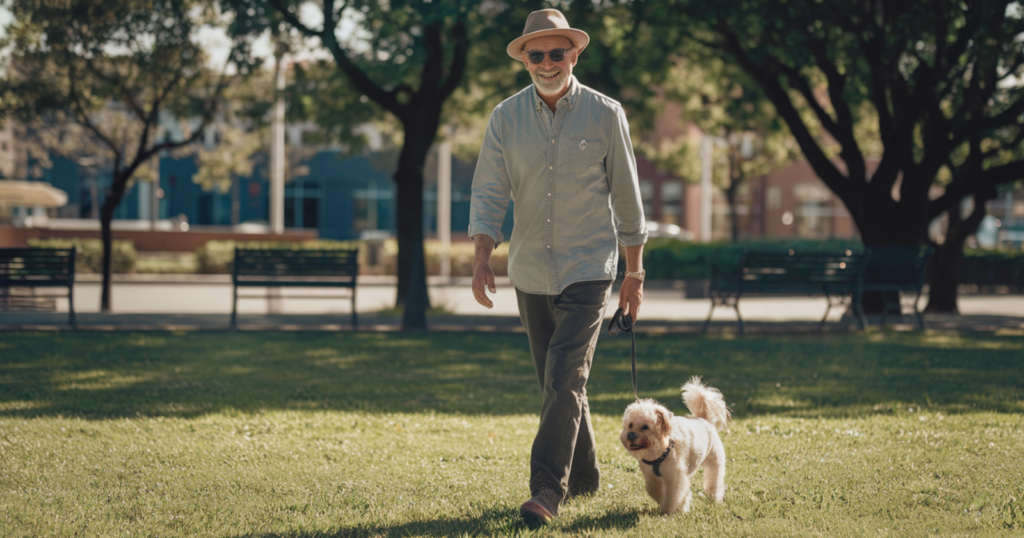Retirement. The golden years. The time to finally put your feet up and enjoy the fruits of decades of hard work.
That’s what I thought it would be, anyway.
The reality? Those first few months after I hung up my office keys were surprisingly tough.
Sure, I loved sleeping in without an alarm clock screaming at me, and I’ll admit there was something satisfying about watching my neighbors rush to catch the morning train while I sipped coffee on my porch.
But after the novelty wore off, something unexpected hit me: a deep sense of loneliness and, frankly, boredom.
The days felt endless yet somehow empty. Without the structure of work, without colleagues to chat with, without that sense of purpose that comes from tackling projects and deadlines, I found myself wandering around the house like a lost soul.
Sound familiar? If you’re recently retired or approaching retirement, you might be nodding along.
The truth is, many of us experience what experts call “the honeymoon phase” of retirement—that initial period of freedom and relaxation—followed by a crash when we realize we’ve lost more than we’ve gained. As experts note, “The end of the honeymoon phase comes with the realization for some retirees that they may have lost as much as they have gained in their new retirement life”.
But here’s the thing: it doesn’t have to stay that way. Over the past couple of years, I’ve stumbled upon five simple daily habits that completely transformed my retirement experience. These aren’t grand gestures or expensive hobbies—they’re small, manageable changes that brought back my sense of purpose and connection.
Let me share what worked for me.
1. Start each morning with a walk around the neighborhood
My first habit began almost by accident. About six months into retirement, I was feeling particularly restless one morning. Instead of reaching for the remote or scrolling through my phone, I decided to step outside. Just for a few minutes, I told myself.
That short walk became the foundation of everything that followed.
There’s something magical about starting your day with gentle movement and fresh air. It gets your blood flowing, sure, but more than that, it connects you to your community.
I started noticing things I’d never paid attention to during my working years—the neighbor who tends to her roses every morning, the jogger who always waves, the way the light hits the trees differently as the seasons change.
These walks became my anchor. No matter what else happened during the day, I knew I’d accomplished something meaningful before most people even had their first cup of coffee. And when you’re dealing with the unstructured nature of retirement, having that one consistent, positive start to your day makes all the difference.
2. Dedicate time to helping others in your community
This one took me a while to embrace, but it became the game-changer.
After months of feeling disconnected, I decided to volunteer at the local food bank. I wasn’t sure what to expect—maybe it would just be something to fill the time. But within a few weeks, I realized I’d found something I didn’t even know I was missing: the feeling of being needed.
The research backs this up in ways that surprised me. One study found that seniors who did volunteer work felt much healthier and happier than those who didn’t. These volunteers not only rated their own health more positively – which researchers know is a good predictor of actual wellness – but they also experienced less depression and loneliness.
Volunteering gave me something retirement had taken away: a sense of purpose. When I’m sorting donations or helping families pick out groceries, I’m not just passing time—I’m making a tangible difference in people’s lives. And that feeling of contribution? It’s better than any hobby I could have picked up.
3. Maintain a simple daily routine
I know, I know. “Routine” might sound like the last thing you want after escaping the 9-to-5 grind. But hear me out.
Without the structure that work provided, I found myself drifting through days with no real sense of accomplishment. Some days I’d realize at 3 PM that I was still in my pajamas, having achieved nothing more than watching the morning news turn into afternoon talk shows.
The routine I developed isn’t rigid—it’s more like a gentle framework. I wake up at roughly the same time each day, take that morning walk I mentioned, eat breakfast while reading something interesting, and then tackle whatever projects or activities I’ve planned. Nothing too ambitious, just enough structure to make each day feel intentional.
As pastor Harry Emerson Fosdick wisely said, “Don’t simply retire from something; have something to retire to”. Creating a routine helped me feel like I was retiring to something meaningful rather than just away from work.
4. Spend quality time with family and friends
This might seem obvious, but it’s easy to underestimate how much our work relationships contributed to our social lives. When those daily interactions disappeared, I realized I’d been more isolated than I thought.
I made a conscious decision to prioritize time with the people who matter most. This meant regular phone calls with old friends, planning activities with my grandchildren, and yes, even scheduling those coffee dates I’d been putting off for years.
Some of my favorite moments now happen during these intentional social connections. Whether it’s teaching my grandson to fish or catching up with a former colleague over lunch, these interactions remind me that retirement isn’t about withdrawing from life—it’s about having the time to invest more deeply in the relationships that truly matter.
The key is being proactive about it. People won’t necessarily reach out to you just because you’re retired, so take the initiative. Send that text, make that call, suggest that get-together. You’ll be surprised how eager others are to reconnect.
5. Learn something new every day
I’ve always been a reader, but retirement gave me the luxury of diving deeper into subjects that genuinely interest me. In fact, I actually went to back to school!
But you don’t have to take it that far.
Maybe it’s reading a chapter of a book that challenges your thinking, watching a documentary about a place you’ve never visited, or even learning a new recipe. The specific activity doesn’t matter as much as the habit of growth.
I can’t tell you I have all the answers, but what I’ve discovered is that keeping your mind engaged and curious makes retirement feel like an adventure rather than a slow slide into irrelevance. Every day brings the possibility of learning something that might change how you see the world, and that’s pretty exciting at any age.
The bigger picture
Looking back, I realize that my initial struggle with retirement wasn’t really about having too much free time—it was about losing my sense of connection and purpose. These five habits didn’t just fill my days; they gave my days meaning again.
The morning walks connect me to my community and my own wellbeing. Volunteering restored my sense of purpose and contribution. A gentle routine provides structure without rigidity. Prioritizing relationships deepens my connections with loved ones. And continuous learning keeps my mind sharp and engaged.
None of these habits require special skills, expensive equipment, or dramatic lifestyle changes. They’re simple, sustainable practices that anyone can adopt. But together, they transformed my retirement from a period of restless boredom into what it was always meant to be: a time of growth, connection, and fulfillment.
Are you ready to make your retirement years truly golden?







